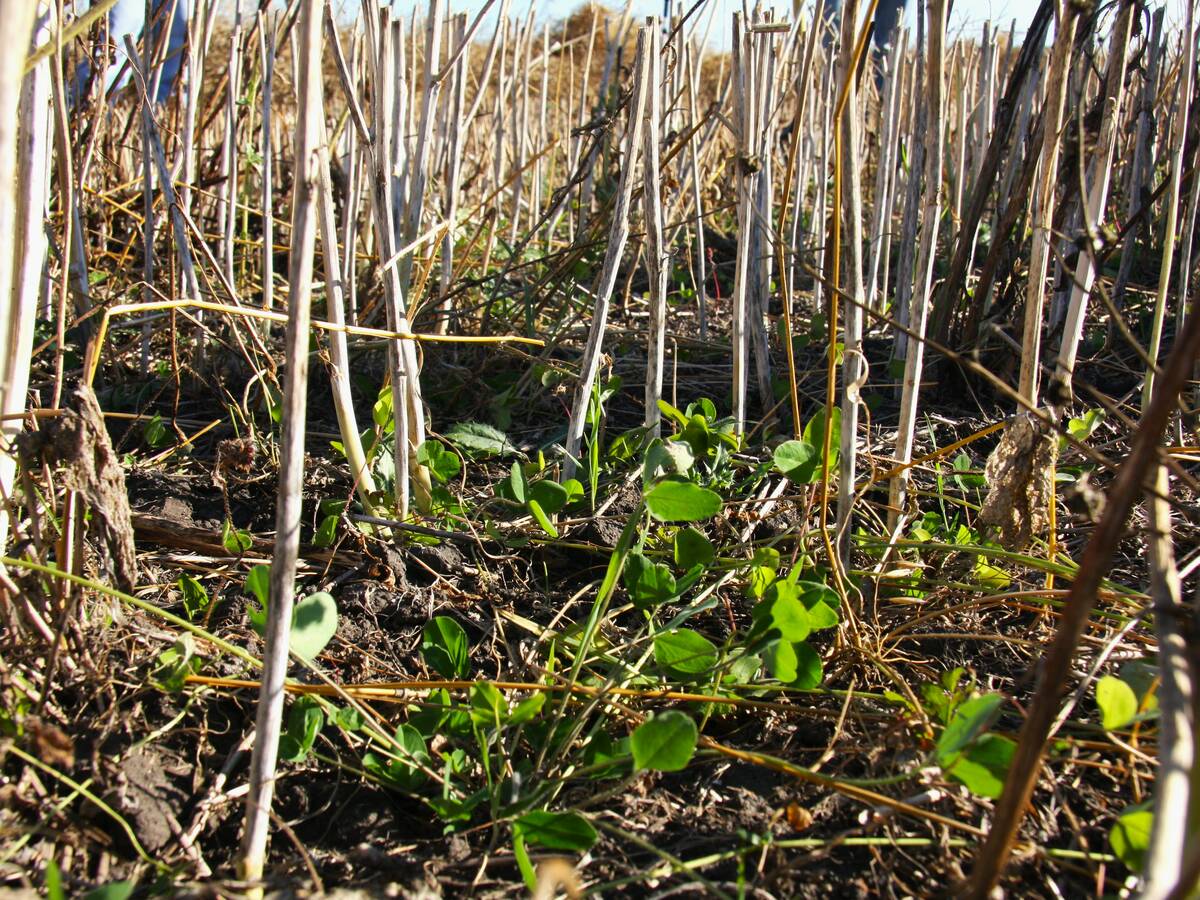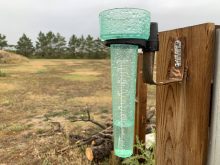SEBRINGVILLE, Ont. – By next spring, Ontario hog farmer Frederik de Martines wants to have his showroom ready – a glassed-in viewing platform that will allow visitors to look into his hog barn where a future meal may be living.
Earlier, they will be able to watch the de Martines’ wild boar herd in nearby fields and forest.
Then, they will be able to visit the family farm retail outlet and perhaps ask Ingrid de Martines how to cook and prepare the pork and wild boar products the farm sells.
Read Also

Saskatchewan project sees intercrop, cover crop benefit
An Indigenous-led Living Lab has been researching regenerative techniques is encouraging producers to consider incorporating intercrops and cover crops with their rotations.
They may have been lured to the farm on the outskirts of Stratford, Ont., by brochures from local restaurants and hotels that feature de Martines farm products, inviting diners to visit the source of their meat.
“The wild boar from our farm are raised in forest conditions like those in the wilds of Europe, assuring that the meat is truly natural,” says an early version of a brochure that will be available next year.
On the hog side, it assures readers that the pigs are raised in a “comfortable environment…. We are committed to producing safe, natural pork which does not contain growth hormones or antibiotics.”
The viewing platform, publicity and invitation for farm visits are part of a dynamic and so-far successful attempt by this immigrant farm couple to move their farm into the value-added end of the business and away from dependence on volatile commodity prices.
It is meant to intrigue and appeal to the thousands of tourists, most of them urban and many of them foreign, who travel to Stratford each summer for the annual Shakespearean festival.
“It’s just marketing and we’ve been learning as we go,” said Frederik, who emigrated with wife, Ingrid, from Holland to the centre of Ontario’s hog industry in 1978.
“We take baby steps and see how it works,” added Ingrid.
So far, it is working well.
On their 100 acre farm, the de Martines produce up to 4,000 pigs per year, buying them as piglets and raising them to market weight.
The pigs are sold to a packer, which has agreed to sell back prime cuts to Perth Pork Products Inc., a company set up by the couple. Those cuts are taken to area processors that turn them into specialty products such as smoked pork chops, teriyaki pork roast and honey mustard pork steak. Those products then are sold to Stratford area restaurants or out of the small retail store the de Martines have set up on the farm.
They do the same with wild boar, which were added to the hog operation in 1992 after the couple decided that they either had to expand their hog operation or diversify.
After toying with adding emus, berries or other commodities to the mix, they decided to try wild boar.
“We quickly discovered there was absolutely no marketing system in place,” said Frederik. “We thought there was a market but how do you develop it? The world was our limit but in a way, the limit was the world as it was then.”
Slowly, surely, he began to talk to local high-end restaurants, asking what type of product they wanted and then working with area processors to develop the products, spices and sauces that would meet the requirements.
One restaurant started carrying products, then another and now there are a dozen or more customers.
“I can’t meet the demand,” he said with a laugh. “And every year we expand, try new products, new approaches. By encouraging consumers to come out here, we are now starting to sell the farm and the setting as part of the package.”
Frederik said the value-added decisions and diversification have made the farm profitable for the couple and their children.
“We will not sell below cost but we can guarantee a price to our customers for the year so we have that control. This fall, we’re losing $30 a pig on the hogs we send to the packer. If we were straight hogs now, we’d be losing $120,000 this year.”
The 50-year-old farmer has come a long way since he landed in Canada 25 years ago as a Dutch swine specialist with a dream of farming but no farming background.
Frederik started working in construction while Ingrid went to work in a Stratford store.
The next year, they found a hobby farm on the edge of the city that they could afford to make a down payment on and they were off, starting small and building.
“We weren’t immigrants who sold a farm in Europe and came here with lots of cash.”
Along the way, the de Martines developed not just farming skills but marketing and promotion skills as well.
Frederik said farmers who rely on selling commodities are missing an opportunity to put more stability into their business.
On Thursdays, he makes the rounds of his restaurant customers and chefs.
“I love that because all my customers are happy to see me. The only reason I can figure that other farmers don’t do this is that they don’t like the marketing side. They don’t like to talk to strangers. They want to load up a truck, say goodbye to the pigs and go back to farming.
“They’re missing an opportunity.”














